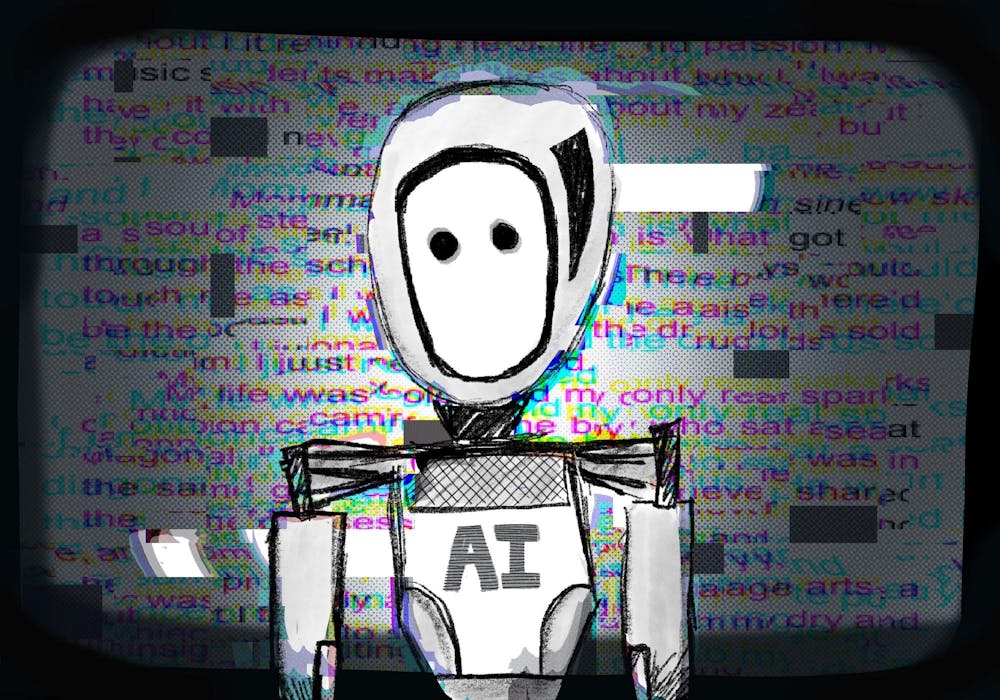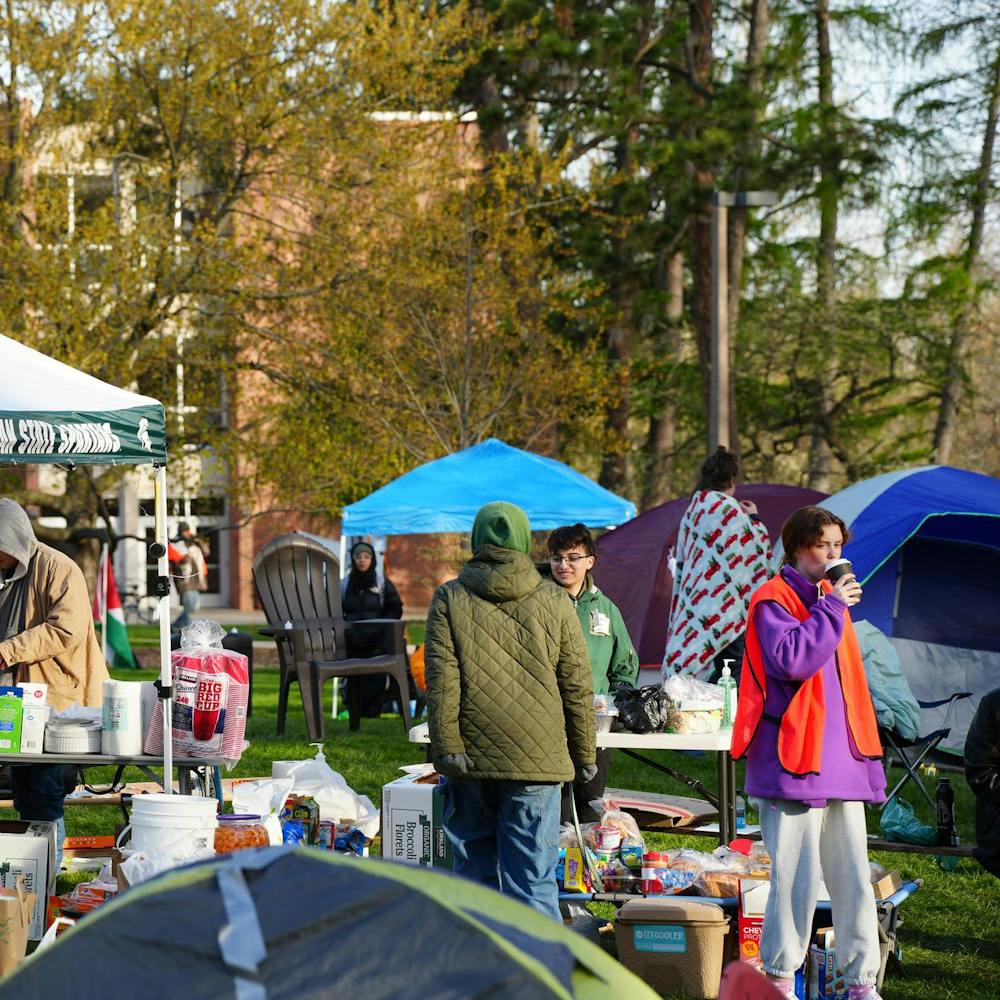With the capabilities of Artificial Intelligence, or AI, rapidly evolving each day, many people have expressed uncertainty over whether the technological development will take away the need for jobs in many industries, such as computer science and even healthcare.
For Michigan State University journalism professor and Management Associate Dean Esther Thorson, there’s no question that jobs within the writing industry will be lost because of AI.
“Could (AI) write a novel? Yes," Thorson said. "Would the novel be a Pulitzer prize winner? I doubt it. But eventually, it could be."
With just a few keystrokes, asking Artificial Intelligence any question — about topics ranging from travel guides to novel chapters — can yield an immediate response. According to The New York Times, this past summer, Google tested an AI tool that can produce news stories.
Thorson believes that as AI continues to evolve, it will have the ability to take over the writing industry.
However, she said, the use of "traditional" AI, which performs tasks based on predefined rules and patterns, has been prevalent within the journalism industry even before the recent development of generative AI, which creates new data resembling human content.
Thorson said several newspaper companies she worked for have used generative AI to help them with sports stories or data collection.
“What AI is so darn good at doing, is just aggregating all of the data that's out there and organizing it into sensible sentences and so forth,” Thorson said. “If you’ve got it trained to do journalistic style, there’s not a whole lot of editing you’re going to have to do. So that means we may get — at the cost of more journalistic jobs — more deep, investigative stories out with the help of ChatGPT and other companies' forms of AI.”
Journalism and communications sophomore Siddhi Choubey said she is “not scared” of AI having the potential to take over her career. She said it largely depends on what type of reporter she wants to be.
Instead, Chaubey said, she's more scared of AI failing to provide real, authentic reporting and perpetuating misinformation among readers.
“(AI) only knows what you tell it,” Choubey said. “The job of news is to tell things in real-time, and I don’t think AI can do that. If I want to write something about an event that happened in the past or a phenomenon, then AI can do that. If it gets the ability to write articles, about phenomena that can be published in a magazine, I feel like it really decreases the effect articles have.”
Choubey also noted that while she believes AI is a useful tool for editing, it can't provide a humanistic tone to writing, which is essential in journalism.
“If you go on ChatGPT and say, ‘write me an article on this,’ it won’t be authentic at all,” Choubey said. “It’s also important to remember that AI can lead to plagiarism because it does not have a brain of its own, which is why I think it can never really take over your career.”
Thorson, who conducts research, said AI will “ certainly threaten someone like me."
“Anything that’s programmable is going to threaten human jobs," Thorson said. "ChatGPT, if it can figure out the experiment and execute the experiment, it could do that in two days. Now, that threatens me as a writer. I don't know what the textbook folks are gonna do.”
Thorson said society is giving AI so much power by inputting extensive data and teaching it to organize information. She urges students to pay close attention to data, in general, and consistently read articles about AI developments.
“You cut off its input and it's nothing,” Thorson said. “But, of course, it's too late to turn off its input, because these AI programs have just gobbled down every bit of content in Google and everyplace else just in one year. If AI becomes your government, you take that brain power multiplied by a thousand. I’m not sure I want that... running my country.”
Australian author and Deakin University PhD student Leon Furze conducts research focusing on the impact of generative AI. He said human-authored content will be “augmented rather than taken over” by AI.
While Furze uses AI for occasional edits for his articles, he barely uses it in PhD writing because there is "no human voice."
“I think there'll be space for that kind of human-authored end,” Furze said. “A lot of AI assistants in various ways, structural edits, proofreading, edits, editorial review... a lot of that will be automated, but the actual nuts and bolts of the writing will still stay with us.”
Support student media!
Please consider donating to The State News and help fund the future of journalism.
Furze said the 2023 SAG-AFTRA writers' strike, which involved the usage of AI affecting writers, was “a really important move.” He said the impact of the Writers Guild is more important than most policy discussions currently happening within government.
Furze added that he believes the hype surrounding AI is at its peak because companies like Google and Microsoft want it to go away.
Thorson said much of AI's appeal rests in its potential to generate money.
“The problem with hiring humans is, it costs a lot of money to hire them,” Thorson said. “So if I can replace you with a free ChatGPT that I downloaded from the internet, I’m going to make way more money."
While AI may open up new pathways, Furze said, he also thinks there will always be a place for writing as a craft.
“It sounds like a start of a dystopia, doesn’t it?” Furze said. “I also think that as part of all of this, 'real' human writing, even if that's sort of AI-assisted rather than just totally AI written, will become more valued, just like sort of artisanal products.”
From his research, Furze predicts that 90 percent of company writing from AI will become automated, making personal interactions between people difficult and awkward.
“There might be people who write for part of their jobs who hate writing,” Furze said. “I'm sure there are plenty of people who hate writing... and they will outsource everything to AI, and that's fine. But we'll keep writing because we enjoy it.”
Discussion
Share and discuss “The 'start of a dystopia': Experts, students discuss AI's impact on writing careers” on social media.







